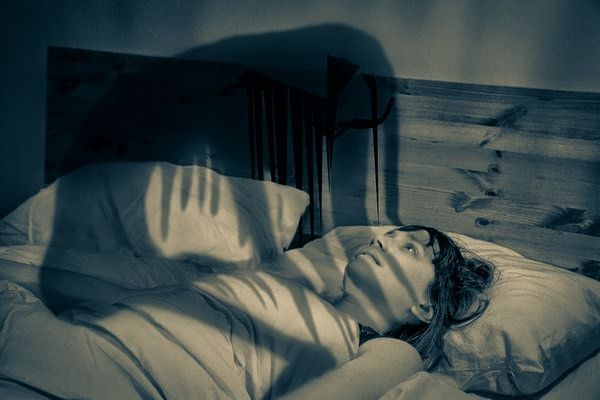Sleep Paralysis
Jun 25, 2019 • 30 views

Sleep paralysis occurs when mind and body don’t synchronize together. Sleep paralysis is generally not a serious condition. In this condition of sleep paralysis a person feels his/her inability to move or speak either at the onset of sleep or upon awakening. Hallucinations may also occur. Sleep paralysis occurs during adolescence. In sleep paralysis a person is conscious but his/her body remains paralyzed in the sleep state. Sleep paralysis may also sometimes accompany some other sleep disorders such as narcolepsy. Sleep paralysis generally occurs at two times. When it occurs while you are falling asleep, it is called hypnagogic or predormital sleep paralysis and when it happens while you are waking up, it is called hypnopompic or postdormital sleep paralysis.
The terrifying dreamlike hallucinations can be categorized into three groups-
Intruder hallucinations- when a person feels the presence of an evil individual.
Incubus hallucinations- a person generally feels choked or something is making them feel so due to presence of something that is pressing down painfully on his/her chest or abdomen.
Vestibular-motor hallucinations-during this condition an individual thinks that he/she is flying, moving or floating. A person may also think like his/her spirit has left the physical body.
Amongst the above, the intruder hallucinations is one of the most commonly experienced during the sleep paralysis.
CAUSE OF SLEEP PARALYSIS
We all know that during sleep, generally, our voluntary muscles do not move.
During sleep we spend most of the time in NREM (non rapid eye movement) condition during which the body relaxes. Sleep paralysis includes disruption of rapid eye movement (REM) sleep cycle. During rapid eye movement (REM) condition, the eyes move quickly and dreams occur during this phase. During sleep paralysis, a body transits to or from REM and this transition is out of sync with the brain.
Sleep paralysis is rarely linked with any kind of underlying psychiatric conditions.
HYPNAGOGIC SLEEP PARALYSIS
Your body tends to relax slowly when you fall asleep. Commonly during this, one becomes less aware not noticing any change. But, if one can remain aware when they fall asleep, he/she may observe that he/she is lacking the ability to move or speak.
SIGNS AND SYMPTOMS OF SLEEP PARALYSIS
When one is consciously awake and feeling very frightened.
Having difficulty during respiring as if one’s chest is restricted.
Some people sense the presence of something in the room that may cause them some harm.
Sweating.
